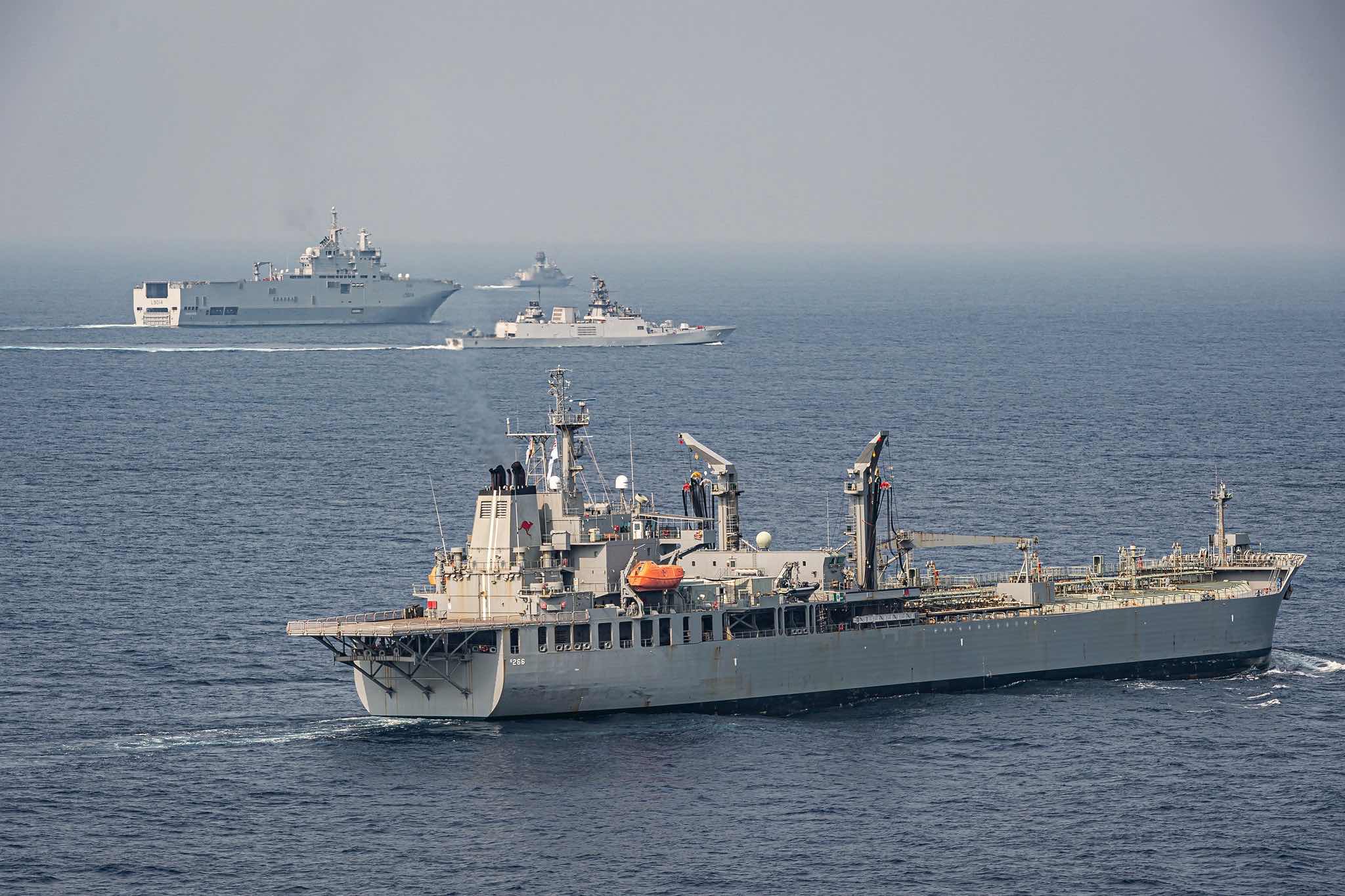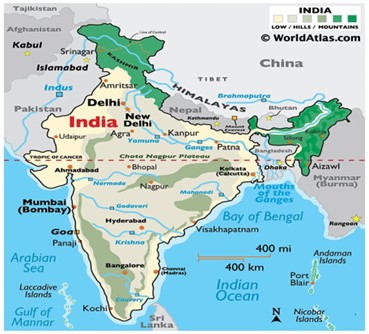
The Malabar Exercise of Quad

The international community today is fraught with various destabilizing factors, such as armed conflicts, unilateral claims to change the status quo, terrorism, and large-scale natural disasters. How can we solve these issues? How can we ensure a secure world for the people of today and for the posterity of future generations?
To realize these ends, it is important that as many countries as possible unite and act together for the security and common prosperity of the world. I believe freedom and democracy are the bedrock for achieving these goals.
In this regard, Japan and India are invaluable partners. Both countries share a long history of democracy, a free economy, and a willingness to contribute to world peace.
If these commonalities are shared not only between our two countries but also with the rest of the world, and if we can act together, we can no doubt make a significant contribution to global prosperity and security.
In this sense, the Japan-U.S.-Australia-India Summit Meeting held in Washington, D.C. on September 24 (local time) was truly meaningful. The four countries are geopolitically linked in the Indo-Pacific region and share fundamental values such as freedom and democracy. At the meeting, the leaders affirmed their commitment to strengthening a free and open international order based on the rule of law, and discussed matters such as the realization of a “Free and Open Indo-Pacific (FOIP),” response to COVID-19, critical and emerging technologies, space, cybersecurity, and climate change.
Japan-U.S.-Australia-India initiatives are not intended to create discord with other countries; it is meant for the four countries that share fundamental values including rule of law and democracy to join hands to address a range of issues in order to maintain and strengthen FOIP. These initiatives are significant on multiple fronts, including economic and socio-cultural, but most of all, I believe these are effective and powerful for regional security and prosperity.
In Japan, there is growing concern over the rapidly changing security environment. In the East and South China Seas, China continues its unilateral attempts to change the status quo and continues to expand and intensify its military activities in these maritime and aerial domains. In addition, North Korea has repeatedly launched ballistic missiles or other objects including ones estimated to fall into Japan’s Exclusive Economic Zone (EEZ). These military developments, including nuclear and missile development, pose a serious and imminent threat to the security of Japan. Such concerns are not confined to Japan. In the South China Sea as well, China’s unilateral reclamation and military use of reefs have raised the concerns of neighboring countries.
In addition, needless to say, the global spread of COVID-19 and large-scale disasters have become major issues in countries around the world. Furthermore, economic security matters, such as how to develop, protect, and manage intellectual property of leading-edge technologies, including 5G and beyond-5G technologies, are gaining in importance.
As I touched on earlier, these security concerns cannot be addressed simply by one country; they must be overcome through cooperation of countries seeking to achieve peace and stability by freedom and democracy.
In this regard, from the view of cooperation between like-minded partners that share fundamental values, we attach great importance to the multilateral naval exercise Malabar, which we were able to conduct even amidst the COVID-19 pandemic.
Malabar began as a bilateral exercise between the United States and India. Then, Japan began to participate in line with the deepening of defense cooperation and exchanges with India. Since 2017, Malabar has been conducted as a trilateral exercise between Japan, the United States, and India. Last year (2020), the Royal Australian Navy participated, realizing a quadrilateral Malabar among Japan, the United States, Australia, and India. This year (2021), naval vessels and other assets from the four countries conducted the exercise from August to September on the island of Guam, in the sea and airspace around the island, and in the Philippine Sea. In mid-October, separate drills are scheduled to take place under the Malabar framework. The number of participating countries has increased as more exercises are conducted, and its content has expanded to include a variety of items.
Through conducting such bilateral and multilateral exercises, like-minded partners such as Japan, U.S., Australia, and India will be prepared to take joint measures swiftly and effectively if a situation threatens people in the Indo-Pacific region. Aside from bilateral and multilateral exercises, if, for example, a large-scale natural disaster occursand the four countries can quickly offer help, this will certainly make the people of other countries feel more secure.
Malabar is not targeted at any particular country. Rather, it gives shape to the beliefs of the four countries that advocate the rule of law, freedom, and democracy. I would like to express respect to India for its initiative on Malabar. Japan will make efforts with India to ensure that efforts including Malabar will bring unity to like-minded partners and security to the countries and people of the region in a rapidly changing security environment.
Disclaimer
The opinions expressed in this article are the author’s own and do not reflect the views of Chanakya Forum. All information provided in this article including timeliness, completeness, accuracy, suitability or validity of information referenced therein, is the sole responsibility of the author. www.chanakyaforum.com does not assume any responsibility for the same.
Chanakya Forum is now on . Click here to join our channel (@ChanakyaForum) and stay updated with the latest headlines and articles.
Important
We work round the clock to bring you the finest articles and updates from around the world. There is a team that works tirelessly to ensure that you have a seamless reading experience. But all this costs money. Please support us so that we keep doing what we do best. Happy Reading
Support Us





















POST COMMENTS (2)
Col Alok Asthana
Mangal Pandey